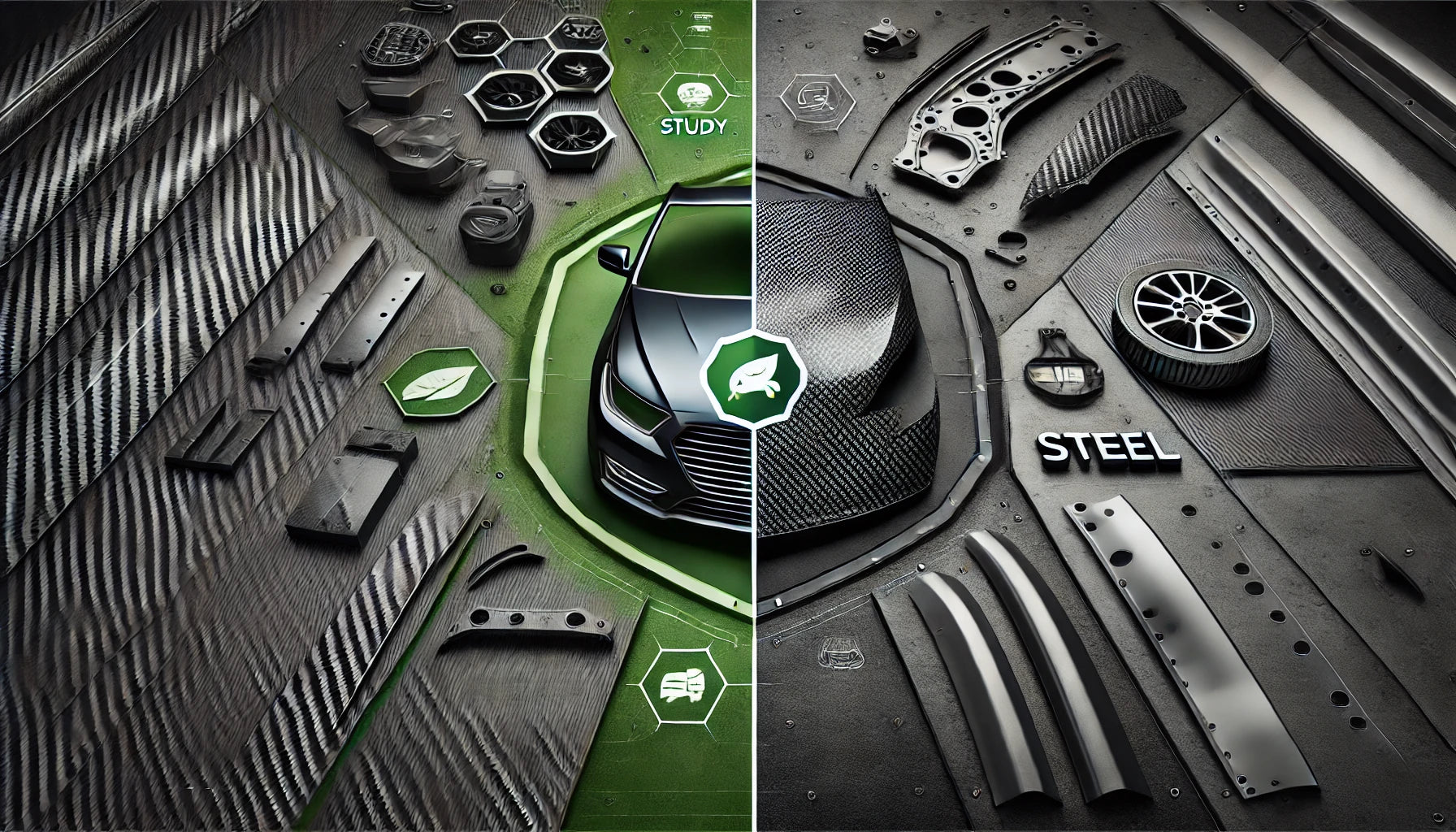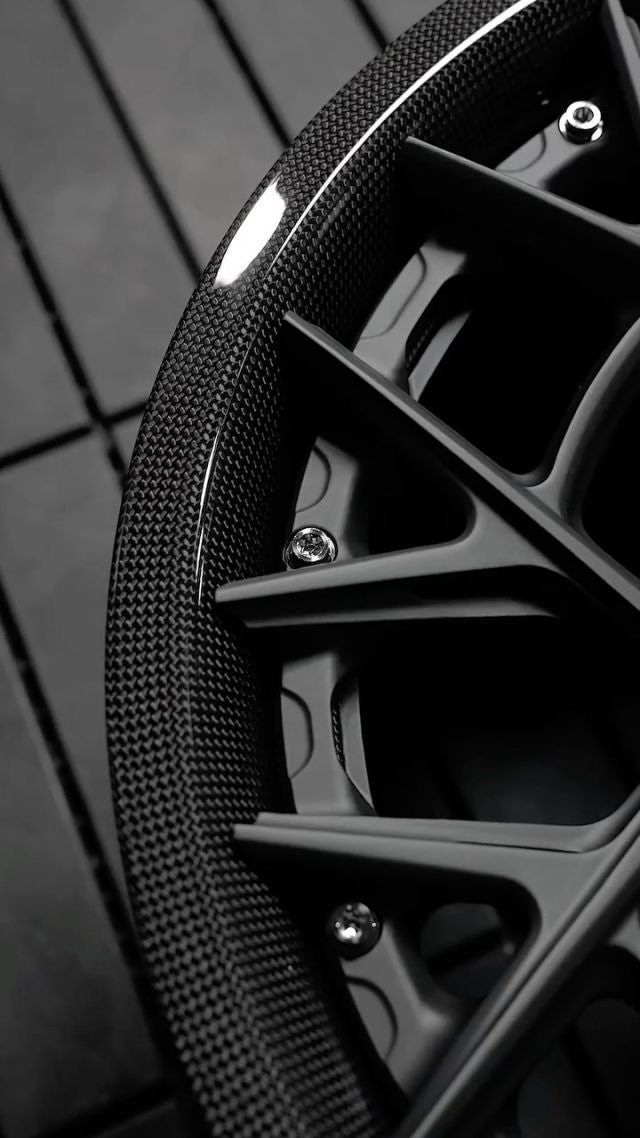
Debunking Myths: The Truth About Carbon Fiber in Automobiles
In the world of automotive enthusiasts and car owners, carbon fiber has emerged as a sought-after material, often associated with high-performance sports cars and luxury vehicles. However, several myths and misconceptions have clouded the true benefits and characteristics of carbon fiber. This article aims to debunk these myths while providing accurate information about carbon fiber's role in the automotive industry, its impact on resale value, and how it compares to alternatives like vinyl wraps and ceramic coatings.
What Are the Common Myths About Carbon Fiber in Sports Cars?
Is carbon fiber stronger than steel?
One of the most prevalent myths regarding carbon fiber is the belief that it is inherently stronger than steel. While carbon fiber possesses a remarkable strength-to-weight ratio, making it ideal for automotive applications, it is essential to understand that strength varies depending on the context. In terms of tensile strength, carbon fiber can outperform many types of steel. However, when subjected to impacts or stress in certain scenarios, steel may be more resilient. This common misconception often leads car owners to assume that vehicles made from carbon fiber are indestructible, which is far from the truth. Care and maintenance, as well as the specific design of the vehicle, play crucial roles in overall durability.
Does carbon fiber really improve performance?
Another widespread myth is that carbon fiber automatically enhances a vehicle's performance. While it is true that carbon fiber components can reduce weight, leading to improved acceleration and handling in sports cars, performance enhancement is not solely reliant on the material itself. Factors like aerodynamics, engine configuration, and suspension setup significantly influence a vehicle's performance as well. Thus, while carbon fiber can contribute to a sports car's agility and speed, it is not a magic solution that guarantees superior performance. Car owners must consider the complete picture when evaluating performance enhancements.
Are there misconceptions about the weight of carbon fiber?
Many car enthusiasts often associate carbon fiber with extreme lightweight properties, leading to misconceptions about its applications. While carbon fiber is indeed lighter than steel, the weight savings can vary widely depending on the design and manufacturing process. It's essential to note that not all carbon fiber components are created equal; some may not provide significant weight reduction compared to their metal counterparts. Therefore, when it comes to modifications, car owners should make an informed decision based on accurate information rather than relying on common myths regarding carbon fiber’s weight advantages.
How Does Carbon Fiber Affect the Resale Value of a Vehicle?
Does using carbon fiber increase resale value?
One of the most frequently asked questions regarding carbon fiber in automobiles is whether its use can increase the vehicle's resale value. Generally speaking, high-quality carbon fiber components can enhance the appeal of a sports car, attracting buyers who value performance and aesthetics. However, the overall impact on resale value depends on various factors, including the brand, model, and condition of the vehicle. While premium carbon fiber parts may enhance the car's attractiveness, they do not guarantee a higher resale price. Therefore, car owners should carefully consider their investment in carbon fiber modifications.
Are there negative impacts on resale with carbon fiber parts?
While carbon fiber can elevate the aesthetic and performance attributes of a vehicle, there can be negative impacts on resale value if the parts are poorly manufactured or installed. For instance, if the carbon fiber components exhibit visible defects or if there is damage to the vehicle's paint due to improper installation, potential buyers may be deterred. Additionally, some buyers may be wary of the long-term durability of carbon fiber, leading to hesitation in purchasing a vehicle with extensive carbon fiber modifications. This reinforces the importance of ensuring that any carbon fiber enhancements are applied correctly to maintain the vehicle's value.
What do buyers really think about carbon fiber in automobiles?
When it comes to buyer perception, opinions on carbon fiber can vary significantly. Many automotive enthusiasts appreciate the sleek look and lightweight properties of carbon fiber, considering it a mark of advanced engineering. However, some car buyers express skepticism regarding the longevity and durability of carbon fiber, fearing that it may not withstand everyday use as well as traditional materials. Ultimately, understanding buyer sentiment is crucial for car owners contemplating the use of carbon fiber, as it can significantly influence resale value and marketability.
Are Vinyl Wraps a Better Alternative to Carbon Fiber?
Do wraps damage the original paint?
Vinyl wraps are becoming increasingly popular as a customization option for car owners looking to achieve a carbon fiber look without the associated costs. However, a common myth suggests that applying vinyl wraps can damage the original paint of the vehicle. In reality, when applied correctly by professionals, vinyl wraps can protect the vehicle's paintwork from UV rays and minor scratches. This paint protection film (PPF) acts as a shield, preserving the underlying paint while allowing for customization. Car owners should seek out reputable installers to avoid potential damage to the vehicle's surface.
Are vinyl wraps as durable as carbon fiber?
Durability is another area of contention when comparing vinyl wraps to carbon fiber. While carbon fiber is known for its strength and resilience, high-quality vinyl wraps can also provide a robust finish. However, they do not match the longevity of carbon fiber in high-performance applications. Over time, vinyl wraps may fade or peel, especially if exposed to harsh environmental conditions. Therefore, while wraps can be an excellent alternative for aesthetic purposes, they may not offer the same long-term durability as genuine carbon fiber components.
What are the pros and cons of using wraps versus carbon fiber?
Both vinyl wraps and carbon fiber have their own distinct advantages and disadvantages. Vinyl wraps allow for greater customization options, enabling car owners to alter the vehicle's appearance without the higher costs associated with carbon fiber. However, the trade-off may be in longevity and performance benefits. In contrast, while carbon fiber provides superior performance and durability, it often comes with a higher price tag. Car owners should weigh these pros and cons, considering their budget and desired outcomes when deciding between wraps and carbon fiber enhancements.
Is It True That Ceramic Coating Protects Carbon Fiber?
How does ceramic coating work on carbon fiber?
Ceramic coating has gained popularity in the automotive industry for its ability to protect a vehicle’s surface, including carbon fiber components. This protective layer bonds with the carbon fiber, creating a hydrophobic surface that repels water and contaminants. By applying ceramic coating to carbon fiber parts, car owners can shield them from UV rays, dirt, and minor scratches, enhancing their appearance and longevity. This process not only preserves the aesthetics of carbon fiber but also reduces the frequency of care and maintenance required.
Does ceramic coating enhance the longevity of carbon fiber?
Indeed, ceramic coating can significantly enhance the longevity of carbon fiber parts. By providing an additional layer of protection, ceramic coating helps prevent degradation caused by environmental factors, such as UV exposure and chemical exposure from road debris. This added protection can prolong the life of carbon fiber components, making it a valuable investment for car owners looking to maintain their vehicle's performance and appearance over time.
Are there any downsides to using ceramic coating on carbon fiber?
While ceramic coating offers numerous advantages, there are a few downsides to consider. The application process requires careful preparation and expertise; if not applied correctly, it can lead to uneven coverage or improper bonding with the carbon fiber. Additionally, ceramic coatings can be relatively costly, which may deter some car owners from investing in this type of protection. Therefore, it's essential to weigh these factors against the potential benefits of enhancing the durability and aesthetics of carbon fiber components.
What Are the Myths Surrounding the Durability of Carbon Fiber?
Do carbon fiber parts really break easily?
A common myth surrounding carbon fiber is that it is prone to breaking easily. In reality, carbon fiber is engineered to be incredibly strong and lightweight, making it an ideal material for automotive applications. While it can crack under extreme conditions, it is not inherently fragile. The durability of carbon fiber parts often depends on their design and the quality of materials used during manufacturing. Car owners should be aware that, with proper care and maintenance, carbon fiber components can provide long-lasting performance.
How does carbon fiber compare to other materials in terms of durability?
When comparing carbon fiber to other materials such as aluminum or steel, it becomes evident that each material has its strengths and weaknesses. Carbon fiber offers superior strength and lightweight properties, making it a preferred choice in high-performance vehicles. However, in terms of impact resistance, metal may outperform carbon fiber in certain scenarios. Understanding how carbon fiber stacks up against other materials helps car owners make informed decisions about the best options for their vehicles.
Are carbon fiber wraps less durable than traditional wraps?
Carbon fiber wraps have emerged as a popular choice for car owners seeking a unique aesthetic without the costs of real carbon fiber. However, a common misconception is that these wraps are less durable than traditional vinyl wraps. In fact, when properly installed, carbon fiber wraps can offer durability comparable to standard wraps, depending on the quality of the material used. It's crucial to select high-quality wraps and have them applied by skilled professionals to ensure a long-lasting finish that withstands the elements.



